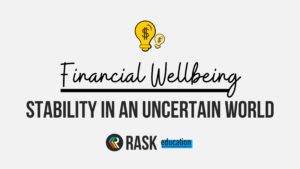When we buy shares we often forget that it means we now have a small, but not entirely insignificant, level of ownership in the company.
It’s easy to forget that behind the share price, there are employees, a board of directors, products, services and countless decisions to be made every day.
Oh, how that red and green flashing share price blinds you.
Generally, the company deals with all of the day to day operations and shareholders won’t know one way or the other. (Think of the madness that would ensue if Telstra had to check with their millions of shareholders every time they wanted to hire a new employee).
But sometimes opportunities arise where shareholders actually get a say in the direction of the company and can use their voice for good.
Some investors choose to sell or not buy shares in companies in the first place if their values don’t align, or they don’t think management is running the business well, but other shareholders may choose to actively engage with the company in a way that might influence their decisions.
Annual General Meetings (AGMs)
I remember walking into the convention centre to attend my very first AGM at the great age of 11, as my grandmother thought it would be an educational experience for me while on school holidays. I was less than impressed. It was for a large Australian bank and I remember protestors standing outside the door as I walked in — they were certainly voicing their opinions as well, just in a different way.
Apart from the free food, the one thing that stood out to me was that audience members (shareholders and guests) were allowed to ask questions of the CEO and board of directors, and not all of them were complimentary. They were able to ask management hard questions, suggest ideas and raise concerns.
It was a good ten years later when I started investing in shares myself, that I started attending AGMs voluntarily.
If you’re investing in a company, I’d keep an eye out for the opportunity to attend these events as they give you a chance to hear first-hand from the management and board who are running the ship.
You can also learn more about the company through its annual report and regular reporting to the ASX throughout the year.
Voting on issues like remuneration (aka does the chair get a pay rise?)
Another fun thing you get to do as a newly minted shareholder is vote on important company issues like new board directors and how much they get paid. These votes often happen during the AGM, but you’re sent out details in advance on voting if you’re unable to attend (which is what most people do).
Historically, many people haven’t voted actively and usually just tick the box saying yes, however, this is slowly starting to change. In 2020, a significant number of dissatisfied shareholders voted against the AMP remuneration report, forcing the company to reevaluate how much their board and senior executives were paid.
The message was heard loud and clear that shareholders expected better from the company, and gave management an extensive grilling earlier this year.
So when you receive your paperwork in the mail or email from the share registry regarding voting in the upcoming AGM, pay attention. Your vote may matter more than you think.
Contacting management
Another way you can learn more about a company as an investor and shareholder is by contacting management. I chatted to ethical investor Claude Walker about this on The Australian Finance Podcast recently, as he has done this quite a number of times and has a great free article on his site outlining his approach.
As long as you’re polite, show them you’ve done your research and have a genuine question, you may hear from the company or their Investor Relations (IR) team. Of course, the worst that can happen if you follow Claude’s approach is that you never hear anything back.
However, if the company starts receiving lots of emails from shareholders asking similar things or raising common concerns, they may start taking notice.




